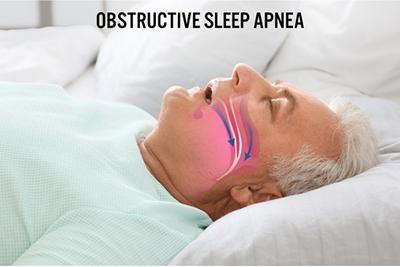
Sleep, a fundamental biological function, is essential to one’s well-being. Sleep apnea is a specific sleep disorder marked by chronic breathing stoppages that cause disrupted sleep. If you or a loved one in Winchester, VA, experiences disrupted or restless sleep, reach out to the experts at Winchester Neurological Consultants for assistance in diagnosing and managing sleep apnea and other sleep-related concerns.
Do I Have Sleep Apnea?
When you stop breathing in your sleep, it can happen because your airway is blocked (a.k.a. obstructive sleep apnea) or because your brain erroneously controls your breathing (a.k.a. central apnea).
When your breath stops during sleep, your brain sends a signal that awakens you so you can restart normal breathing. Breathing interruptions may last for a few seconds to minutes but result in a decrease in blood oxygen levels.
Sleep apnea has the potential to cause serious health issues when left undiagnosed or untreated because the condition negatively impacts your life by contributing to insomnia, diminished cognition, and fatigue during the day. In addition, untreated or unmanaged sleep apnea has been associated with an enhanced risk of cardiovascular problems like hypertension, stroke, and heart disease.
Typical Sleep Apnea Symptoms
While symptoms vary, insomnia often presents as a fundamental or primary characteristic. Other sleep apnea symptoms include –
- Persistent, loud snoring over time.
- Regular awakenings throughout the night or restlessness.
- Gasping or struggling for breath during sleep.
- Waking up with headaches, dry mouth, or a sore throat.
- Experiencing daytime sleepiness or fatigue.
- Trouble concentrating.
- Mood swings and irritability.
Some people have a greater sleep apnea risk –
- Men are more likely than women to have apnea.
- A woman’s risk goes up after menopause.
- People carrying excess weight are at greater risk.
A sleep study is generally recommended, as breathing patterns can be measured and recorded while you are asleep. This can be done in a specialized lab or, sometimes, in your own home.
Treatment Options for Sleep Apnea
Treating sleep apnea will vary based on each individual’s unique needs. Common treatments after diagnosis include –
- Lifestyle changes – losing weight to recommended levels.
- Using a CPAP device.
- Dental appliances can help reposition your jaw, to name a few.
In rare instances, surgery may be necessary to correct relevant anatomical issues.
Contact a Leading Sleep Specialist in Winchester, VA
If you recognize any of the above-noted sleep apnea signs, contact a team member of Winchester Neurological Consultants at 540-667-1828, by text at 540-722-6207, or online. A timely and proper diagnosis – and a personalized sleep apnea treatment plan can help to significantly improve the quality of your sleep and your complete and overall health.
